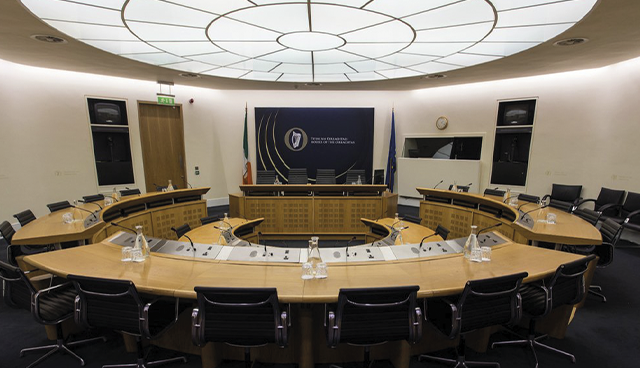Proposal for further northern Oireachtas representation voted down

A recent proposal to grant standing invitee status to northern MPs and MLAs, allowing them to sit on Oireachtas committees that do not vote on legislation, has been voted down by the Committee on Standing Orders and Dáil Reform.
The proposal, which had been passed unanimously by the Oireachtas Committee on the Implementation of the Good Friday Agreement in January 2022, was rejected amid claims that it could have “legal or constitutional implications”. The proposal, if passed, would have granted standing invitee status for northern MPs and MLAs on special Oireachtas committees that do not vote on legislation.
Elected representatives from the North do currently have special invitee status for the Oireachtas Committee on the Implementation of the Good Friday Agreement, a status which grants them speaking rights and access to Oireachtas papers. The proposed move to extend this status to further non-legislative committees was rejected by a majority of the Committee on Standing Orders and Dáil Reform, with a belief in government that standing invitee status could “amount to de-facto membership of an Oireachtas committee, which may have legal or constitutional implications”, that the structure of standing invitees would be different from the current d’Hondt system of membership, and that the presence of standing invitees would eat into the speaking time of elected Oireachtas representatives.
The voting down of the proposal has led the Sinn Féin leader Mary Lou McDonald TD to accuse the Government of a “coordinated effort” to try to exclude Stormont and Westminster representatives from the Oireachtas. In a letter to her Fianna Fáil, Fine Gael, and Green Party counterparts Micheál Martin TD, Leo Varadkar TD, and Eamon Ryan TD, McDonald stated that she had felt there had been “positive engagement” on the issue until the month leading up to the vote and that she felt the rejection of the proposal flew in the face of the recent National Economic and Social Council (NESC) Shared Island report that “emphasised that a shared agenda and a set of interests is a key enabler of cross-border collaboration”.
The idea of such expanded northern representation in the bodies of the Oireachtas is not new, with the former Sinn Féin leader Gerry Adams claiming that he had received assurances from then-Taoiseach Bertie Ahern that speaking rights in the Dáil for MPs, a claim that was later amended to speaking rights in Oireachtas committees, in their discussions in the lead-up to the Provisional IRA’s announcement of the cessation of its armed campaign in July 2005.
It is unlikely that this will signal the end of the pursual of expanded rights for northern representatives in the Oireachtas, with Sinn Féin certainly in a much stronger electoral position in 2022 than in 2005. The party’s leader in the Seanad, Niall Ó Donnghaile, stated that the rejection “sends a very negative message to people in the North” and pledged to continue to pursue the issue.





